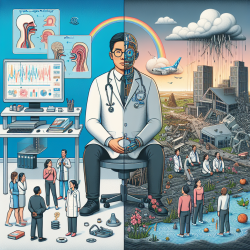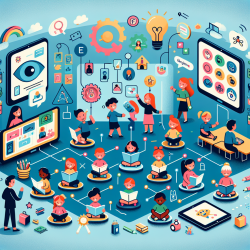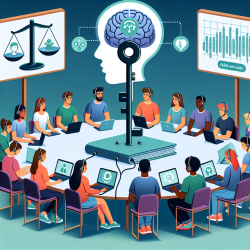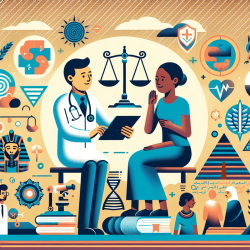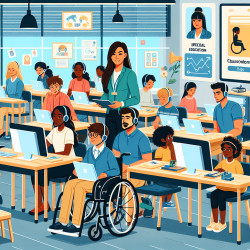Introduction
In the ever-evolving field of speech-language pathology, practitioners are constantly seeking ways to enhance their practice and improve outcomes for children. One area that offers valuable insights is the intersection of public health ethics and disaster bioethics, as explored in the research article "Public Health Disasters: A Global Ethical Framework" by Michael Olusegun Afolabi. This blog post will delve into how speech-language pathologists can implement the outcomes of this research to improve their skills and encourage further exploration in this area.
Understanding Public Health Disasters
The concept of public health disasters (PHDs) is relatively new and encompasses the ethical and pragmatic challenges that arise at the intersection of public health and disaster scenarios. These disasters can include infectious disease outbreaks, natural or man-made disasters with significant public health impacts, and latent public health issues with the potential to become pandemics.
For speech-language pathologists, understanding these dynamics is crucial, as they often work with vulnerable populations who may be disproportionately affected by such disasters. By familiarizing themselves with the ethical frameworks discussed in the research, practitioners can better navigate the complex moral dilemmas that may arise in their practice.
Implementing Ethical Frameworks
The research highlights the need for a global ethical framework (GEF) to address the moral quandaries associated with PHDs. This framework emphasizes the importance of balancing individual and collective health needs, ensuring justice and fairness, and addressing human rights concerns.
Speech-language pathologists can apply these principles by:
- Advocating for equitable access to therapy services for all children, regardless of their socio-economic background or geographic location.
- Collaborating with other healthcare professionals to ensure a coordinated response during public health disasters.
- Engaging in continuous professional development to stay informed about the latest ethical guidelines and best practices in disaster response.
Encouraging Further Research
While the research provides a foundational understanding of public health disasters, there is still much to explore in this emerging field. Speech-language pathologists are encouraged to contribute to this growing body of knowledge by conducting research on the impact of PHDs on communication disorders and therapy outcomes.
By participating in interdisciplinary research initiatives, practitioners can help develop more comprehensive ethical frameworks that address the unique challenges faced by their clients during public health disasters.
Conclusion
Incorporating the insights from "Public Health Disasters: A Global Ethical Framework" into speech-language pathology practice can enhance practitioners' ability to navigate complex ethical dilemmas and improve outcomes for children. By advocating for equitable access to services, collaborating with other professionals, and engaging in further research, speech-language pathologists can play a vital role in addressing the challenges posed by public health disasters.
To read the original research paper, please follow this link: Public Health Disasters.
